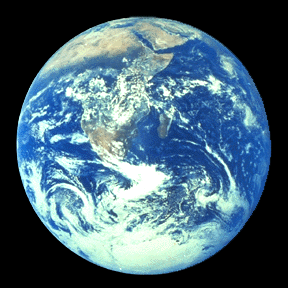 BACK TO THE PAST, PRESENT, AND FUTURE EARTH SYSTEMS - HOME PAGE
BACK TO THE PAST, PRESENT, AND FUTURE EARTH SYSTEMS - HOME PAGE
In Earth System Science we approach understanding nature by looking at the interconnections of the parts of the Earth and its surroundings, as well as looking at the parts. The study tends strongly to be interdisciplinary hence quite challenging, but more rewarding as well.
Systems can be thought of as having four components:
€ System attributes
€ System history
€ System elements
€ System connections
Systems often display the wonderful attribute of having "emergent properties", that is, "the whole is greater than the sum of its parts". This is not trivial point, but rather is critical to our understanding. No one could understand the significance of the system that was Georgia O'Keefe by examining the properties of the chemical elements that made her up. The system attributes are often emergent properties. Our climate is an emergent property of the Earth's Biosphere system.
The Earth System changes through time because the earth has a history and all of its parts, particularly the living parts, have a history. Indeed they evolve.
Columbia University is a major center of research on Earth Systems; Below are a number of Columbia-related web sites related to Earth Systems.
 BACK TO THE PAST, PRESENT, AND FUTURE EARTH SYSTEMS - HOME PAGE
BACK TO THE PAST, PRESENT, AND FUTURE EARTH SYSTEMS - HOME PAGE